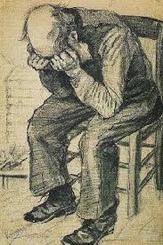 I read with great interest that the Republican Sen. Jim Inhofe has warmed up to his democratic colleagues. What precipitated this unlikely melting of partisan boundaries was an outpouring of support after his son's fatal plane crash on Nov. 10. As the conservative senator commented: "I seem to have gotten more -- well at least as many, maybe more -- communications from some of my Democrat friends. And I'm a pretty partisan Republican... Something like this happens and all of a sudden the old barriers that were there, the old differences, those things that keep us apart -- just disappear."
I read with great interest that the Republican Sen. Jim Inhofe has warmed up to his democratic colleagues. What precipitated this unlikely melting of partisan boundaries was an outpouring of support after his son's fatal plane crash on Nov. 10. As the conservative senator commented: "I seem to have gotten more -- well at least as many, maybe more -- communications from some of my Democrat friends. And I'm a pretty partisan Republican... Something like this happens and all of a sudden the old barriers that were there, the old differences, those things that keep us apart -- just disappear."
Wow! The old difference suddenly disappeared when the senator's usual opponents displayed human empathy in his moment of loss and vulnerability. That got me thinking. What if the entire United States Congress had a moment of revelation that human vulnerability is something we all share. What if it suddenly dawned on our leaders that in any given moment, millions of our family members -- our American family -- are experiencing a similar vulnerability or trauma? And what if -- even though we don't know these people personally -- we opened our hearts to their stories and allowed ourselves to be affected by their predicaments, sorrows, and challenges?
For one person, it might be a decline in health or the terminal diagnosis of a family member; for another, being laid off and the terror of not knowing how they'll pay their bills. For a single parent reeling from divorce, there might be the additional insult of not having money to feed her children. For parents pursuing the American Dream of raising a happy family, it might be this: heartbreaking news that developmental deficits in their child are linked to a nearby toxic waste site or pollution spewing from a factory that was not adequately regulated.
Neuroscience is discovering that we're wired for connection. Attachment theory, which is based upon sound research, suggests that humans cannot thrive without healthy bonds. Martin Luther King expressed it poetically: "We are caught in an inescapable network of mutuality, tied in a single garment of destiny. Whatever affects one directly, affects all indirectly."
Residing in America, we're part of the American family. The senator's tragic loss and his generous response remind us that we are first and foremost human beings within that family, despite our difference. We need to look out for our fellow Americans, such as to ensure that our air is clean, and our food safe -- and that our fellow humans who are desperate can trust that help is available. We need each other to create a more perfect union.
It's not a weakness to be vulnerable. We all struggle at times and need supportive words, kind acts, or a helping hand.
The impulse to care about people who are vulnerable doesn't mean we're a bleeding heart liberal -- a term that's perhaps designed to shame people into caring only for themselves or their immediate family. Being touched by others' suffering is simply the natural response of one human heart to another -- a spontaneous movement toward empathy, whatever ideologies our minds might entertain. A bleeding heart leaves one helpless and powerless; a resilient heart can care for oneself, while also being responsive to others.
A concrete example of our interconnectedness is the Russian roulette that leads to your child being killed in a car crash by a drunk driver or random shooting. In this case, we're not pointing the gun toward our own head, but we're complicit in co-creating a society where multiple guns are being pointed toward us -- and not knowing which one will be loaded. Random tragedies that affect both rich and poor might be minimized if we worked together to create affordable treatment programs and helped struggling families to raise their children with dignity, as well as create programs in schools to increase emotional intelligence and reduce bullying.
We might like to believe that everyone should relish their independence, but we're interdependent creatures. We affect each other and need each other. Cultivating a deep and rich empathy can help us be more responsive to each other's needs. This can raise our gross national happiness index, which is used in the country of Bhutan to measure progress.
What if we created a think tank to develop policies based upon our evolving understanding of how we're humanly wired? Wouldn't our quality of life improve if we co-created a society that supported our fullest potential?
For those of us who are doing well, it often takes some tragedy to break open our heart and awaken us to our shared humanity. We're all part of the human condition and we have much more in common than we have differences.
This revised post originally appeared on PsychCentral.com.
Image from Wikimedia Commons
Disclaimer: Opinions and statements expressed here are my own views and should not be construed as professional advice.